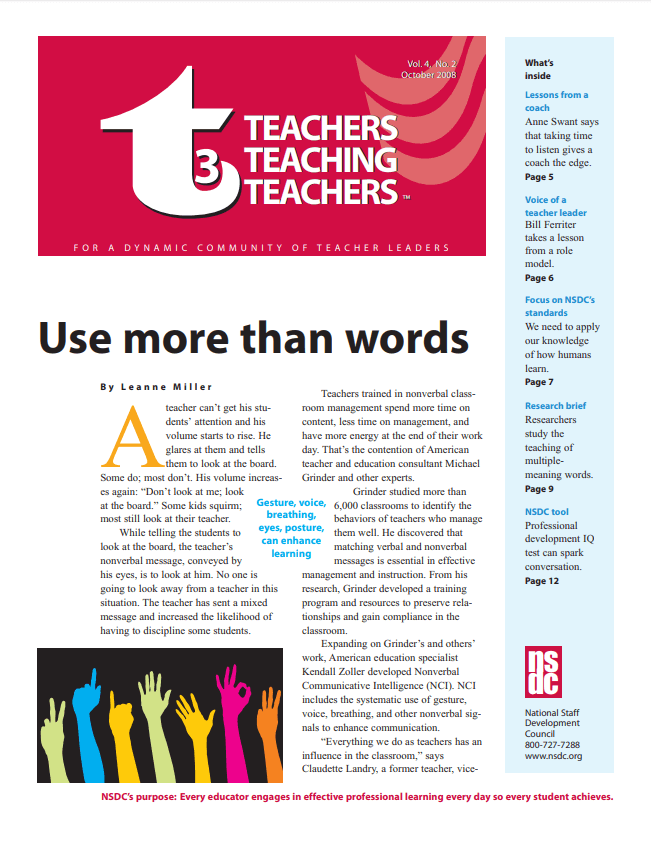
Teachers Teaching Teachers, October 2008, Vol. 4, No. 2

Use more than words
Teachers trained in nonverbal classroom management spend more time on content and less time on management. In this article, learn practical strategies for effectively using variations in voice, body language, and eye contact to best suit specific classroom situations.
By Leanne Miller
Lessons from a coach: Investment in time pays off
As an instructional coach in a high school, Anne Swant of Walla Walla, Washington, knows that "it's all about the content." Working with teachers who are confident in their content knowledge requires that she carefully facilitate learning conversations. Most importantly, she must find time for teachers to discover new insights for themselves.
Voice of a teacher leader: Leaders show us where to stretch
In his classroom, Ferriter encourages his students to look up to role models, to learn from those with impressive skills. Ferriter's own role models include a former principal. Studying this leader helped Ferriter see the importance of thoughtfully developing relationships. Now he's working on his own skills in that arena.
By Bill Ferriter
Focus on NSDC's standards: Apply knowledge of learning
For coaches working to help teachers meet NSDC's Learning standard, this column outlines various types of learning, how different people learn, and other factors that influence adult learning. Killion offers instructional leaders guidance in helping all teachers learn, no matter where they are in their learning journey.
By Joellen Killion
Research brief: Going beyond word definitions
Two researchers recently studied the effect of explicit instruction on vocabulary words with multiple meanings for students in elementary school. They discovered that students had gains in reading comprehension; students with low initial vocabulary achievement also made gains in vocabulary knowledge. Read more to learn how the study was conducted.
By Carla Thomas McClure
NSDC tool: What's your professional development IQ?
NSDC created the Professional Development IQ test as a tool to stimulate conversation about what educators and stakeholders know about teaching and professional learning. The survey is intended to surface perspectives and assumptions about professional development. Each question and answer includes a citation so users can locate the

